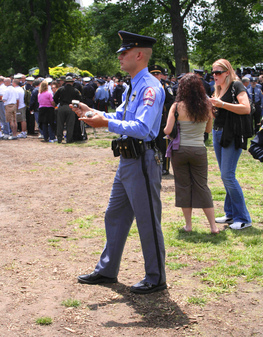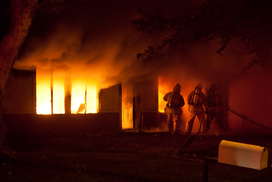- Home
- Videos
- Links
- Working with Interpreters
- Favorite Products
-
Newsletters
- December 2017
- December 2014
- June 2014
- March 2014
- December 2013
- November 2013
- October 2013 Newsletter
- July 2013 Newsletter
- June 2013 Newsletter
- March 2013
- February 2013
- January 2013
- December 2012
- November 2012
- October 2012
- September 2012
- August 2012
- July 2012
- June 2012
- May 2012
- April 2012
- March 2012
- February 2012
- January 2012
- November 2011
- October 2011
- September 2011
- August 2011
- July 2011
- March 2011
- February 2011
- January 2011
- October 2010
- September 2010
- May 2010
- April 2010
- March 2010
- September 2009
- May 2009 Remastered
- April 2009 Remastered
- February 2009 Remastered
- Healthy Body and Soul
- Upcoming Seminars
- More...
- COVID info for Medical interpreters
November 2012 Newsletter
In this number
Phrase and Grammar Practice
How to Read the Code
Glossary from Latest Meeting
Police Gear
Memory: Tips to Keep it Strong
Hats
History of the LAPD
This Month's Favorite Link
Thank you for coming! Richard and Catalina were at the Brew-Haha and we were able to practice phrases, discuss Title 11, and talk about other important issues. We continue getting together on the third Wednesday of every month, so if you're in the city of Wilmington, please feel free to join us!
|
We talked about how sometimes simple phrases are hard to remember after interpreting legal vocabulary all day. It is also important to remember using not only the right words, but also the right grammar. I had to interpret these Spanish phrases and they made me think about the importance of context and meaning. Below are some or the phrases we discussed at the meeting: 1. Me fui a escondidas (secretly; without telling anyone) 2. Quiero que mi hija esté tranquila (security) 3. Nunca nos faltó nada (all needs met) 4. Mi madre puede estar bien tranquila que nunca le va a faltar nada 5. Siempre estuvo presente como padre (may not mean physical presence) 6. De repente levanté la vista y estaba allí parada (may be a stopped car or a person standing!) 7. Me lo llevé por delante (run over is too strong; bump into is too light) 8. El ultimo orejón del tarro (last one chosen) 9. My shoes are too tight (me aprietan) 10. You won’t get another bite of the apple 11. Misconduct Title 11, Chapter 5, Sub-chapter III Glossary Arson- incendio intencional Reckless Burning- incendio por negligencia temeraria Criminal Mischief- daño de propiedad o bienes Tresspassing with intent to peer or peep- entrada no autorizada [a propiedad privada] con el propósito de atisbar lascivamente Criminal Trespass- entrada no autorizada Burglary- violación de propiedad/ v. de domicilio Home Invasion- invasión de domicilio/violación de domicilio con propósito de cometer crimen o crímenes violentos Possession of burglar’s tools or instruments facilitating theft- tenencia de herramientas para penetrar propiedad privada o de elementos para cometer fraude Robbery- robo/asalto Carjacking- asalto de vehículo automotor Shoplifting- hurto en tienda/llevarse mercadería sin pagar/ratería Use of illegimate retail sales receipt or Universal Product Code Label- uso fraudulento de recibo o etiqueta codificada Restitution- resarcimiento/indemnizacion Theft of a motor vehicle- hurto de vehiculo automotor Theft: Organized retail crime- hurto organizado en tienda [al por menor/minorista] Possession or theft of a prescription form or a pad- posesion/hurto de receta o talonario de recetas medicas (en blanco) Theft; lost or mislaid property; mistaken delivery- hurto de mercancia olvidada/abandonada; recibida por error/ entrega a destinatario equivocado Memory: Ways to Keep it Strong

.
|
First: How to Read The Code At out meeting we translated the names and descriptions of the offenses included in this section. The glossary is included below. We decided to consult with the courthouse librarian to understand the numbers, names, and symbols included in the code. First, the librarian pointed out the distinction between The Laws of Delaware and the Delaware Code. The Laws of Delaware are a compilation of the official acts of each session of the Delaware General Assembly. They are presented in multiple volumes and include annotations. The Delaware Code is what we were reading. There are 31 titles in the Delaware Code. TITLE 11 Crimes and Criminal Procedure Delaware Criminal Code CHAPTER 5. SPECIFIC OFFENSES Subchapter III. Offenses Involving Property § 801.... § 802. Arson in the second degree; affirmative defense; class D felony. (a) A person is guilty of arson in the second degree when the person intentionally damages a building by starting a fire or causing an explosion. (b) In any prosecution under this section it is an affirmative defense that: (1) No person other than the accused had a possessory or proprietary interest in the building, or if other persons had such interests, all of them consented to the accused's conduct; and (2) The accused's sole intent was to destroy or damage the building for a lawful purpose; and (3) The accused had no reasonable ground to believe that the conduct might endanger the life or safety of another person or damage another building. This entire paragraph above should be referred to as Title 11, Chapter 5, Sub-chapter 3, Sub-part A, Section 802-b-3 (§ means section, not sub-section) Read anything after the section as a letter, or letter and number if present. The above is usually displayed on court papers as: 11 Del. Laws, c.5 § 802 b-3 If you were to search for section 801 of the Delaware Code you would arrive at this same paragraph. Sections have unique numbering. The State Codes of Spanish-speaking countries are written in a completely different way. For example, in Argentina, Provincia de Buenos Aires, Ley 7425 is the CÓDIGO PROCESAL CIVIL Y COMERCIAL DE LA PROVINCIA DE BUENOS AIRES, Libro 1, etc. In LEY 7425, Articulos have unique, consecutve numbering like the Sections in our Delaware Code. This is a complicated issue for me because in my interpreting and translating, I make it a mission to enable people to look things up based on the terms I chose. That's why I leave all agency names in their original language. I once encountered a foreign professor of law that told me she had many times seen translations where the terms used made no sense in her country. After taking into account my pet peeve, this brief research, and the wise words of the professor, for Title 11, Section 802 Delaware Code, I would now probably say: Articulo 802 de la ley 11 del Codigo de Delaware. For 11 Del. Laws, c.5 § 802, I would translate it almost literally: 11 Delaware Code, capitulo 5, seccion 802. (I purposely left the word Code in English) I will try this. Try it yourself and see what works for you, then let me know at our December meeting! Burglary
Burglary Third Degree: A person is guilty of burglary in the third degree when the person knowingly enters or remains unlawfully in a building with intent to commit a crime therein.- (Violación de propiedad) Burglary Second Degree: A person is guilty of burglary in the second degree when the person knowingly enters or remains unlawfully: (1) In a dwelling with intent to commit a crime therein; or (2) In a building and when, in effecting entry or while in the building or in immediate flight therefrom, the person or another participant in the crime: a. Is armed with explosives or a deadly weapon; or b. Causes physical injury to any person who is not a participant in the crime.- (Violación de domicilio) Burglary First Degree: A person is guilty of burglary in the first degree when the person knowingly enters or remains unlawfully in a dwelling at night with intent to commit a crime therein, and when, in effecting entry or when in the dwelling or in immediate flight therefrom, the person or another participant in the crime: (1) Is armed with explosives or a deadly weapon; or (2) Causes physical injury to any person who is not a participant in the crime.- (violación nocturna de domicilio) All degrees of Burglary are felonies (different categories) Warning Avoid using the term ALLANAMIENTO for Burglary since ALLANAMIENTO is a judicial procedure executed by officers of the court or police. When interpreting misdemeanor avoid using the Spanish term DELITO MENOR since it does mean the same thing. DELITO MENOR implies something minor such as an infraction or a code-violation. Use DELITO MENOS GRAVE or simply DELITO. For infractions or code-violations use FALTA. Some warning signs are better left untranslated:
|
>

Police Uniform and Gear
Bullet proof vest- chaleco anti balas
Baton- fusta/porra/ tonfa
Taser- pistol electrica
Firearm- pistola
Ammunicion- municiones
Weapon- arma
Magazine- magazín
Badge- placa
Name tag- broche identificatorio
Driver’s licence- licencia de conducir
Mace/ pepper spray - aerosol lacrimógeno
OC spray (oleoresin capsicum)- oleorresina de capsicum
Radio- radio
Cellular telephone /cellphone- teléfono móvil/celular
Boots- botas
Handcuffs- esposas
Uniform- uniforme
Hat- sombrero
Baseball-type Cap- gorra tipo beisbol
8-Point Hat- Gorra octagonal
Handcuff holder- porta esposas
Flashlight- linterna
Gloves- guantes
Knife- cuchillo
Barrier tape- cinta de seguridad
Whistle- silbato
Spikes (to deflate tires)- clavos
Helmet – casco
Scope- mira telescópica
Shirt- Camisa
Tie- corbata
Trousers/pants- pantalones
T-Shirt/undershirt- camiseta
Socks- medias
Shoes- zapatos
Pullover polo shirts- camiseta polo
Hoodie- buzo/sudadera con capucha
Jacket- chaqueta/campera
Bullet proof vest- chaleco anti balas
Baton- fusta/porra/ tonfa
Taser- pistol electrica
Firearm- pistola
Ammunicion- municiones
Weapon- arma
Magazine- magazín
Badge- placa
Name tag- broche identificatorio
Driver’s licence- licencia de conducir
Mace/ pepper spray - aerosol lacrimógeno
OC spray (oleoresin capsicum)- oleorresina de capsicum
Radio- radio
Cellular telephone /cellphone- teléfono móvil/celular
Boots- botas
Handcuffs- esposas
Uniform- uniforme
Hat- sombrero
Baseball-type Cap- gorra tipo beisbol
8-Point Hat- Gorra octagonal
Handcuff holder- porta esposas
Flashlight- linterna
Gloves- guantes
Knife- cuchillo
Barrier tape- cinta de seguridad
Whistle- silbato
Spikes (to deflate tires)- clavos
Helmet – casco
Scope- mira telescópica
Shirt- Camisa
Tie- corbata
Trousers/pants- pantalones
T-Shirt/undershirt- camiseta
Socks- medias
Shoes- zapatos
Pullover polo shirts- camiseta polo
Hoodie- buzo/sudadera con capucha
Jacket- chaqueta/campera
In court we hear the bailiff ask people to remove their hats before entering. Here is a document containing most types of hats people wear in different parts of the world. Click here to view!

This Month's Favorite Link
Online Speech Bank: Useful for Practicing Simultaneous Interpreting
(Next to each title you will see one or more letters. These letters stand for the format of each speech. T stands for text, V stands for video, and A stands for audio.)
Online Speech Bank: Useful for Practicing Simultaneous Interpreting
(Next to each title you will see one or more letters. These letters stand for the format of each speech. T stands for text, V stands for video, and A stands for audio.)






